- Home
- Roger Taylor
The Call of the Sword Page 8
The Call of the Sword Read online
Page 8
‘I’ve already sent to the Lords Arinndier, Darek and Hreldar, and asked them to attend me here so that we can discuss this matter,’ he gestured towards the paper, ‘and decide what to do. If necessary we’ll go to Vakloss and ask the King for an accounting. I’m sure that some sound reason lies behind this deed, and that a simple asking will elicit it.’
No one offered any comment. Most of them were inclined to agree with Tirke, if not with his manners, but no one felt inclined to argue with their Lord that night. Eldric stood up and smiled.
‘I’m afraid I’ve disturbed our humble celebration and I apologize. However, I’ve done all that I can do about our news until my friends arrive so I see no reason why our festivities shouldn’t continue.’
He clapped his hands loudly and the hall was suddenly filled with light and cheerful music. The clouds that had gathered disappeared as servants and guests alike hastily cleared the tables and began the traditional dancing and singing with which the beginning of the week-long Festival was always celebrated.
* * * *
The Geadrol was the King’s Council of Lords. It advised him in all matters and was an ancient institution. It had no leader; not even the King himself when he chose to attend and join in the debates. Nor did it have any formal spokesman to take its considerations to the King; this task was allocated according to a strict rota.
The debates were governed by a strictly observed precedent. One Lord would speak, and would be allowed to say his piece fully, then another would speak similarly, a scribe taking note of all that was said. After a while, one Lord would, if he felt able, summarize the various arguments, referring as need arose to the scribe or to the Lords themselves for clarification. If his summary was accepted by the main participants, then the matter would be thrown open to further debate, and he would act as Gatherer until a satisfactory conclusion had been reached.
Necessarily, the task of Gatherer tended to fall mainly to the older and more experienced Lords, though by no means always.
The conduct of the Geadrol was the envy of houses of government in many distant lands, but its success was due mainly to the stern discipline of the Fyordyn and, as an institution, it did not travel well.
By tradition, the Lords in Geadrol were always dressed and armed for war, but voices were never raised, and interruptions were made only by the scribe or Gatherer. All had an opportunity to state their case as fully as they wished, and discussion continued until a wide agreement had been reached. The matter would then be laid before the King, whose acceptance was usually a formality.
Only when the nation was threatened could this procedure be modified, and then only slightly. The Geadrol would appoint a small group of its more experienced members to handle matters. They, together with the King, would use the same principle of thorough debate, but with less formality and greater urgency.
No one could say that the Geadrol was a form of government suitable for making rapid decisions, but under normal circumstances, the quality of the Lords’ debates, their judicious though not slavish regard for precedent, and their innate tolerance, ensured that such advice as was given to the King ensured in turn a society that was, for the most part, free from those disturbances that made rapid decisions necessary.
The whole was governed by the Law. Like the Geadrol, this relied heavily on precedent and it could only be altered by the King and his Geadrol, ‘The greater part of the people freely consenting’.
* * * *
When the guests had departed to their rooms, Eldric sat alone, surveying the scattered remains of the feast. The sight of his normally spartan hall so happily dishevelled, with its panelled walls and elaborately moulded ceiling lit by the traditional many-coloured torches, and everything decorated with winter and spring blossoms, never failed to induce a mellowness in him that he relished. His father had been a great celebrator of the Festival and its joy was rooted deep in Eldric’s memories.
He nodded to himself. In spite of the sombre interruption, it had been a lively affair, a fine honouring of the First Day of the Grand Festival.
There would be more events through the week: more feasting and dancing, bonfires, pageants, games and above all, traditional masques portraying the great events of Fyorlund’s history, with splendid arch-villains to be hissed, and great heroes to be cheered. It was a happy up-ending of all the normal social disciplines and Eldric knew that the traditional momentum of the Grand Festival would allow his guests to continue their celebrations largely unclouded by the news of the King’s actions. But he himself was less favoured. Now, for the first time since the Morlider War, matters of state responsibility would dominate his thoughts through this happy time, and drag his oldest friends from their own celebrations.
He frowned and leaned back in his chair. As he did so, his eye fell on the small shrine of the Four Guardians. It was standing in its place of honour against the north wall of the hall where it had been placed with all due ceremony to mark the opening of the Festival. Around it were candles whose light glittered from the ubiquitous Fyordyn symbol that topped the shrine – a polished iron ring.
The shrine was a simple, old-fashioned piece of work. No one even dared to suggest to Eldric that he replace it with one of the more modern representations that came from Dan-Tor’s workshops in Vakloss. In his mind he knew its every detail. The figures were old and worn, and bore only intermittent traces of their original paintwork. They and their shrine had been in his family for many generations, and he remembered the feeling of comfort and security that they used to give him when he was a child. He smiled as he thought of it, and wondered if his own son, Jaldaric, would in turn look back on such a memory.
Heaving himself up out of his chair he walked, a little shakily, across to the shrine. Then crouching down as he used to, he brought his face close to it and peered in at the scene. Apart from the warmth of the nearby candles on his cheek nothing from the outside world impinged on his senses.
As was traditional, three of the Guardians, Sphaeera, Enartion and Theowart had their backs to the watcher, and were gazing out across the black waters of Lake Kedrieth, where Sumeral, the Enemy of Life, had sunk from this world of men after a terrible battle with the Kings and Peoples of the Great Alliance. Somewhere hidden in the shrine, Eldric knew, would be a figure representing the fourth Guardian, Ethriss, the Guardian of Life who vanished from the field at the very moment of victory. It would be well hidden by the makers of the shrine because to find it would be a bad omen, a sign of the Second Coming of Sumeral.
The saga of the defeat of Sumeral was a stirring allegory of the conflict between evil and good that must be fought continually in all men. No one knew the real, time-shrouded, origins of this myth, or why it should hold such strong sway in the minds of the Fyordyn. Nor why it should be celebrated with yearly revels leading up to the Grand Festival every sixth year, with its intangible but powerful sense of reaffirmation. That it was the relic of ancient celebrations of thanksgiving for the passing of winter seemed to Eldric to be a peculiarly vapid explanation.
Eldric looked past the Guardians into the inky depths of Lake Kedrieth, and felt again his childhood wonder at the skill of the artist in the sinister quality imbued in its dark, glistening surface.
He smiled, a little ruefully. That had been a long time ago. Times were simpler then. Now, Fyorlund’s King was weak and ailing. There was no heir from his lovely queen to continue the royal line that had been unbroken for centuries. Lords on the northern borders had been declared rebels simply for opposing his will in the matter of quite reasonably extending their High Guards. And now this – the suspension of the Geadrol – an almost unbelievable act. And over all stretched the gaunt, enigmatic figure of the King’s personal adviser and physician, Dan-Tor.
Eldric looked deep into the little model of Lake Kedrieth. Its lifeless surface seemed to ripple slowly and ominously, as if something far below it were stirring. He shuddered and stood up, resting his weight on his cracking knees. He grunted at
the sound. He did not like becoming old. Its sole consolation was that it had given him the experience to better use the wits it had left him. And he would need them. People would be looking to him for some response to Rgoric’s action.
He turned and beckoned Varak, the Commander of his High Guard.
Chapter 10
Hawklan was distressed when he heard Gavor’s tale of the happenings at the village since his departure – Isloman damaging his hand, the tinker’s wares being cast out of the village. Strange and worrying events. He nodded his satisfaction at Gavor’s account of the villagers’ actions and of Tirilen’s treatment of Isloman’s injury and her laying words over the abandoned wares, but the healer in him was not moved to return. Still he felt himself impelled away from Anderras Darion, or rather, drawn by some force towards the Gretmearc; a force that became stronger as he moved further from the village.
He was quite proud of the progress he was making. This was due in part to the good weather, but also to the fact that he knew where he was going. Not once did he need to consult the elaborate instructions that Isloman had painstakingly written for him in the florid script and formal grammar of the Carver’s writing.
This knowledge was a phenomenon with which he had been familiar ever since he had walked out of the snow-blocked mountains to open the Great Gate of Anderras Darion. He had recognized each thing as he came to it, but it was a recognition without memory. None of the castle’s countless rooms were strange to him, nor any of the miles of corridors. Even the mysteries of the terrifying labyrinth that guarded the Armoury became familiar as he moved into it. But nothing carried so much as a wisp of the past in its wake.
So it was now in the mountains. He knew the route as he took it. He knew mountain lore when he needed it – more even than Isloman had told him – how to read the weather signs, how to pace his walking, how to travel on the treacherous snow he might reach at the height of his journey, where and how to shelter – all were familiar.
And yet, he was not curious except insofar as he was intrigued by his own lack of curiosity. He had treated people who had lost their memories and he knew he exhibited none of their symptoms; no shapeless distress, no fretful questioning, no haunting elusive familiarity in the things around him, no sudden flashes of recollection that gradually became longer and longer. It was like nothing he had ever seen in anyone else. The knowledge was there. It always had been. But it did not announce its coming or its arrival in any way. He felt no more reaction to the unending revelations than he would if he looked at a chair and knew it for a chair. It puzzled him a little – but only a little. Something in his makeup was above such concerns.
On the fifth day out from the village, Hawklan woke and crawled out of his small shelter into a cold mist that obliterated the view in every direction, reducing visibility to a small circle of snow-covered earth of which he was the centre. He stretched and took a deep cold breath then wrapped his cloak tight around himself and drew its hood over his head. Out of the corner of his eye he saw glistening pearls of moisture forming on the edges of the fabric.
He ate a little food and dismantled and packed his shelter, the snow crunching under his feet as he moved around. The sound made him pause. The mountains were normally quiet, but there was always a background murmur echoing around the valleys: a mixture of wind on the rocks and in the sparse vegetation, distant streams starting their busy journeys to the sea, countless tiny birds, insects and other creatures pursuing their daily rounds. Now, in the mist, however, there was a different silence. Standing very still as he gazed into the greyness and watched his cloudy breath, the only thing that Hawklan could hear was the sound of his own pulse gently throbbing in his head. He found it peculiarly restful, and stood for quite a time before breaking the self-induced spell.
He looked round for Gavor. There in the snow were his characteristic footprints – one claw mark and one small hole. He was about to call out when a sudden cry startled him. It came from the direction in which Gavor had gone. Hawklan called out his friend’s name, but his voice fell dead in the damp mist, and seemed hardly to leave his mouth. An equally muffled reply returned to him.
‘Here, dear boy.’
Hawklan walked along the trail of tiny prints towards the voice and soon reached Gavor, looking a little the worse for wear and walking unsteadily round the motionless body of a small dead bird.
‘Gavor,’ he said in some annoyance, ‘I wish you wouldn’t kill things when I’ve food enough for both of us.’
‘Dear boy,’ said Gavor, ‘I’m well aware of your dietary eccentricities. You know I wouldn’t dream of offending your delicate sensibilities. This one wasn’t on my breakfast menu I can assure you.’
Hawklan looked at him suspiciously. ‘What was that noise then?’ he asked.
Gavor cleared his throat.
‘Me, dear boy, I must confess. Me. Crying out in some considerable alarm.’
Hawklan waited, expecting some elaborate rigmarole to excuse this gratuitous killing, but Gavor offered none.
‘I was pottering around, looking for some tasty . . . er . . . leaf, to start the day, when this thing fell out of the sky.’
Hawklan’s suspicious look darkened. Gavor continued.
‘Fell, dear boy. I assure you. Nearly hit me. Gave me quite a start I can tell you. I’m still a little shaky.’
Hawklan bent down and picked up the dead bird. It was exactly like the one that Gavor had chased out of the rocks.
‘Do you recognize it?’ he asked.
‘Yes,’ said Gavor. ‘It’s the little beggar who was watching you. Or its double.’ Then he flapped his wings excitedly.
‘Ah, that’s it,’ he cried. ‘The noise. The noise. I recognize it now.’
‘What noise?’
‘The noise its wings made. That whirring sound. I remember.’ Then, angrily. ‘It’s been following us all the way. I’ve heard it flying about and didn’t realize what it was. Scruffy little beggar.’
Hawklan looked down at the tiny figure in his hand.
‘Well, it’s not following now,’ he said, turning it over. ‘I wonder what killed it? I can’t see any injury. It looks healthy enough.’
‘Apart from being dead,’ chuckled Gavor, before adding, insincerely, ‘Sorry.’
Hawklan held the bird close to his face to examine it more thoroughly. He put his finger gently under its head and lifted it slightly. Abruptly its eyes opened. They were yellow, and they glared malevolently at him. Before he could react, the bird wriggled out of his hand and flew off at great speed.
Gavor rose up as if to follow, but the bird had only flown a little way when it uttered a strange cry and crashed straight down onto an exposed slab of rock standing above the thin snow. At the same time, Gavor cried out and fell to the ground, rolling on to his side in the snow.
So fast did these events happen, that Hawklan was still standing with his palm extended. He looked at the stricken bird and then at Gavor.
‘Gavor, what’s the matter?’ he cried out, kneeling down by his friend.
‘I’m all right,’ said Gavor, struggling to his feet, wings flapping awkwardly and throwing up flecks and sprays of snow.
‘Look, look,’ he said excitedly, thrusting his head out urgently, pointing into the mist. Hawklan turned round and followed his gaze. The morning sun was beginning to colour the mist and for a brief moment he thought he saw two tiny figures fading into the yellow haze. As he blinked to focus in the disorienting mistlight, they were gone. Gavor opened his wings and skimmed off in the same direction.
Hawklan stood up and brushed the snow off his cloak. He walked over to the brown bird lying motionless again on the rock. Picking it up warily, and holding it well away from his face, he gently lifted its eyelid. The eye was pale yellow and quite devoid of life. With gentle fingers he examined the bird carefully. There were no signs of injury, nor equally, any signs of life. And yet somehow it did not feel to be dead. He frowned uneasily.
Gavor appear
ed out of the mist above and settled on his shoulder.
‘Nothing,’ he said. ‘Not a soul, dear boy. And I’m sure I saw two of them. Little people. Like children.’
‘So did I, Gavor,’ said Hawklan. ‘It was probably the mist swirling. It plays funny tricks on the eyes. There’s no one up here. We’ve met no one since we started, and anyway they’d have come to see what the noise was about by now.’
‘Maybe you’re right,’ said Gavor in a resigned tone. ‘But I’m sure I saw something.’
‘Are you all right now?’ asked Hawklan. ‘What happened? Why did you fall when that bird fell down?’
Gavor put his head on one side. ‘I don’t know,’ he said. ‘It was like a noise. A strange noise, a strange singing.’
His voice changed and became very distant.
‘It was a killing song. I’ve read of them on the Great Gate. And I was on the edge of it. It was a killing song for that brown bird, and they had to sing it twice.’
‘Gavor, what in the world are you talking about? And who are “they”?’
Gavor’s eyes lit up in a mixture of alarm and excitement.
‘It’s true,’ he said. ‘Really true.’ He was talking as much to himself as to Hawklan. ‘A killing song. I could tell. But it wasn’t for me. It was for that. It’s the Alphraan. They’re real, and we saw them.’
Hawklan had never heard him gabble on so before.
‘Well I heard nothing,’ he said. ‘And I’ve never heard of an Alphraan, let alone seen one, so perhaps you’d care to tell what you’re talking about.’
Gavor collected himself. ‘The Alphraan, dear boy. The Alphraan. It’s all on the Gate. You must have read it. High up, over on the right hand side. Tiny people who live in caves in the mountains.’ He spread his wings. ‘Miles and miles of caves. They make carvings that sing and they use songs to hide themselves and even to fight with when necessary. We’d better leave. They’re very discerning, they’re not keen on . . . humans.’
Hawklan looked at his friend sceptically. ‘Gavor, I’ve never seen anything about them on the Gate. And singing carvings are just a village tale. All that’s happened here is that a little bird, which you happen not to like for some reason, has died suddenly. Probably of . . .’ He looked skyward for an idea. ‘. . . exhaustion maybe.’ Then, defensively, as he caught Gavor’s expression, ‘And we saw the mist swirling in the sun and casting shadows, not magical creatures from some old carver’s tale.’

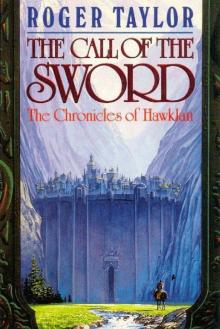 The call of the sword tcoh-1
The call of the sword tcoh-1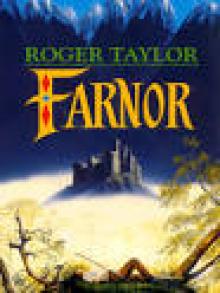 Farnor
Farnor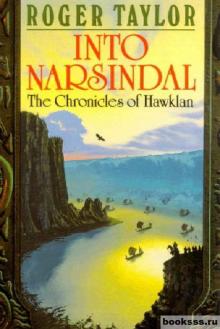 Into Narsindal
Into Narsindal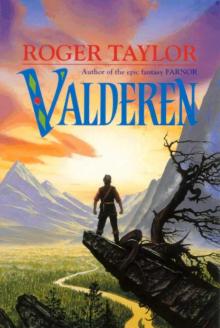 Valderen ft-2
Valderen ft-2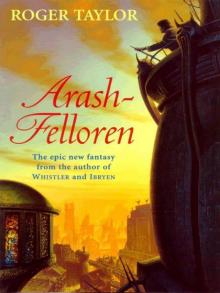 Arash-Felloren
Arash-Felloren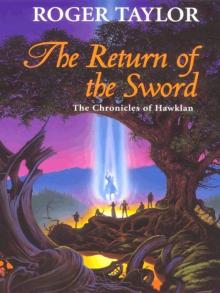 The Return of the Sword tcoh-5
The Return of the Sword tcoh-5![Ibryen [A sequel to the Chronicles of Hawklan] Read online](http://i1.bookreadfree.com/i1/03/26/ibryen_a_sequel_to_the_chronicles_of_hawklan_preview.jpg) Ibryen [A sequel to the Chronicles of Hawklan]
Ibryen [A sequel to the Chronicles of Hawklan]![The Call of the Sword [Book One of The Chronicles of Hawklan] Read online](http://i1.bookreadfree.com/i/03/24/the_call_of_the_sword_book_one_of_the_chronicles_of_hawklan_preview.jpg) The Call of the Sword [Book One of The Chronicles of Hawklan]
The Call of the Sword [Book One of The Chronicles of Hawklan]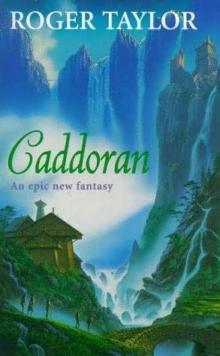 Caddoran
Caddoran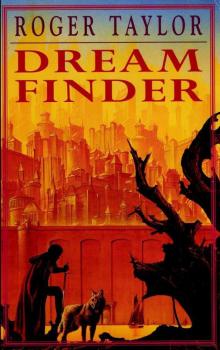 Dream Finder
Dream Finder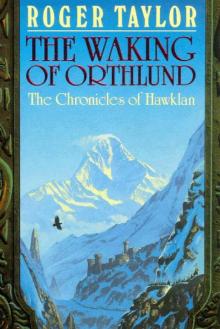 The Waking of Orthlund
The Waking of Orthlund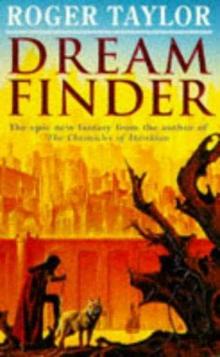 Dream Finder cohs-1
Dream Finder cohs-1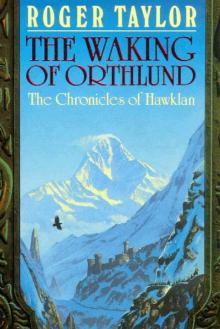 The waking of Orthlund tcoh-3
The waking of Orthlund tcoh-3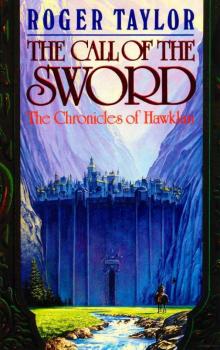 The Call of the Sword
The Call of the Sword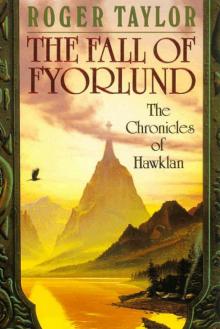 The fall of Fyorlund tcoh-2
The fall of Fyorlund tcoh-2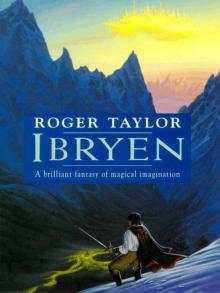 Ibryen
Ibryen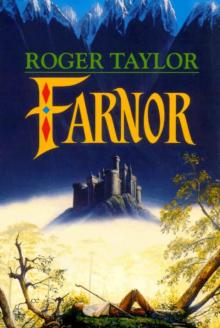 Farnor ft-1
Farnor ft-1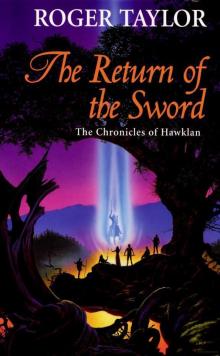 The Return of the Sword
The Return of the Sword![Into Narsindal [Book Four of The Chronicles of Hawklan] Read online](http://i1.bookreadfree.com/i2/04/06/into_narsindal_book_four_of_the_chronicles_of_hawklan_preview.jpg) Into Narsindal [Book Four of The Chronicles of Hawklan]
Into Narsindal [Book Four of The Chronicles of Hawklan]![Valderen [The Second Part of Farnor's Tale] Read online](http://i1.bookreadfree.com/i2/04/05/valderen_the_second_part_of_farnors_tale_preview.jpg) Valderen [The Second Part of Farnor's Tale]
Valderen [The Second Part of Farnor's Tale]![The Fall of Fyorlund [Book Two of The Chronicles of Hawklan] Read online](http://i1.bookreadfree.com/i2/04/08/the_fall_of_fyorlund_book_two_of_the_chronicles_of_hawklan_preview.jpg) The Fall of Fyorlund [Book Two of The Chronicles of Hawklan]
The Fall of Fyorlund [Book Two of The Chronicles of Hawklan]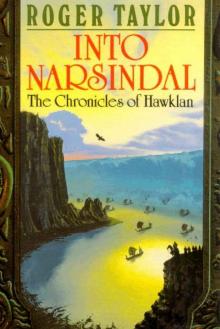 Into Narsindal tcoh-4
Into Narsindal tcoh-4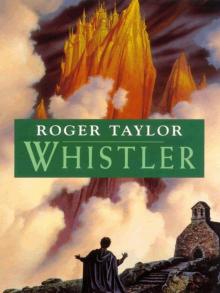 Whistler
Whistler![Whistler [A sequel to The Chronicles of Hawklan] Read online](http://i1.bookreadfree.com/i2/04/12/whistler_a_sequel_to_the_chronicles_of_hawklan_preview.jpg) Whistler [A sequel to The Chronicles of Hawklan]
Whistler [A sequel to The Chronicles of Hawklan]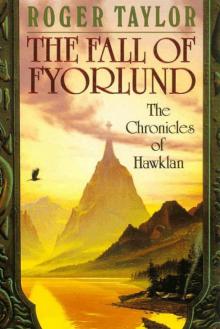 The Fall of Fyorlund
The Fall of Fyorlund![The Waking of Orthlund [Book Three of The Chronicles of Hawklan] Read online](http://i1.bookreadfree.com/i2/04/11/the_waking_of_orthlund_book_three_of_the_chronicles_of_hawklan_preview.jpg) The Waking of Orthlund [Book Three of The Chronicles of Hawklan]
The Waking of Orthlund [Book Three of The Chronicles of Hawklan]